The Role of Construction Consultants in Modern Projects
Discover how construction consultants drive project success through expert planning, risk management, and compliance oversight.
In today’s complex building environment, success depends on far more than just skilled trades or innovative designs. Behind every successful project lies careful planning, rigorous compliance with regulations, and coordinated communication between stakeholders. At the centre of this framework are professionals who bring expertise, impartial guidance, and structured processes to ensure that projects are delivered on time, within budget, and to the highest quality standards. These professionals are known as construction consultants.
This article explores their role in detail, explaining why they are critical to the industry, what services they offer, how they add value at each stage of a project, and what organisations should look for when engaging them.
Understanding the Role of Consultants in Construction
Construction projects, whether small-scale refurbishments or multi-billion-dollar infrastructure works, are inherently complex. They involve multiple stakeholders, including architects, engineers, contractors, subcontractors, suppliers, regulators, and financiers. Coordinating all of these groups while managing design integrity, cost efficiency, risk, and compliance is no small task.
Consultants act as trusted advisors who provide objective advice and technical expertise. Unlike contractors or suppliers, their role is not tied to the execution of the physical works but to ensuring that the project is strategically and practically aligned with the client’s goals.
They serve as a bridge between clients and the delivery team, balancing technical requirements with business objectives. Their involvement is especially valuable in environments where compliance, risk management, and sustainability are critical to success.
The Wide Range of Services Provided
The scope of services provided by construction consultants is broad and often tailored to project size, industry, and client requirements. Below are some of the most common areas of support:

1. Project Planning and Feasibility
Consultants assist during the very earliest phases of a project. They provide feasibility studies, budget forecasting, site evaluations, and regulatory compliance checks. This helps clients make informed decisions before significant financial commitments are made.
2. Design Coordination
Ensuring that architectural and engineering designs align with project objectives is critical. Consultants coordinate input from multiple design professionals and ensure designs are realistic, compliant, and aligned with the client’s budget.
3. Cost Management
One of the most important responsibilities is financial oversight. Consultants prepare cost plans, monitor expenditure, and manage variations throughout the project lifecycle. Their role is to prevent budget overruns while ensuring quality standards are maintained.
4. Risk Management
Construction projects face risks such as delays, safety incidents, regulatory breaches, or material shortages. Consultants implement structured risk management processes that identify hazards early, assign responsibilities, and establish mitigation strategies.
5. Contract Administration
They ensure contracts are fair, enforceable, and effectively managed. This includes drafting tender documents, evaluating bids, and ensuring legal compliance throughout the project.
6. Quality Assurance
Consultants often oversee quality control measures, ensuring construction works meet specifications, standards, and client expectations. This protects the client’s investment and prevents costly rework.
7. Environmental and Sustainability Guidance
Modern construction increasingly emphasises environmental impact. Consultants provide guidance on green building certifications, carbon reduction measures, and sustainable material choices.
8. Safety and Compliance Oversight
Ensuring that sites comply with safety regulations protects workers and reduces liability. Consultants help establish systems that meet legislative requirements and industry best practices.
Why Consultants are Essential in Construction Projects

1. Objectivity
Consultants are independent and free from commercial bias. Their advice is based on what is best for the project and the client, rather than on profit margins.
2. Specialist Knowledge
They bring expertise across various disciplines, from engineering and law to safety and sustainability. This ensures complex problems are tackled with informed solutions.
3. Efficiency
By streamlining communication and decision-making, consultants save time and money. They prevent duplication of work and ensure resources are allocated effectively.
4. Risk Reduction
With experience in identifying potential issues before they escalate, consultants reduce the likelihood of delays, disputes, or costly mistakes.
5. Compliance Assurance
They ensure adherence to building codes, occupational health and safety laws, environmental standards, and contractual obligations.
The Stages of Project Involvement

1. Pre-Construction Phase
In this stage, consultants conduct feasibility studies, develop budgets, assist with financing strategies, and prepare tender documents. They ensure the project starts on solid ground.
2. Design Development
Consultants facilitate collaboration between architects, engineers, and clients, making sure design decisions align with budget and project goals.
3. Procurement
They manage the tendering process, from issuing documents to evaluating bids, ensuring the most suitable contractor is selected.
4. Construction Phase
During this stage, consultants monitor progress, manage risks, oversee safety, and control costs. They act as the client’s representative on-site, ensuring that contractors deliver as agreed.
5. Post-Construction
After completion, consultants assist with final inspections, defect rectification, compliance checks, and project handover. They also support facility management strategies for long-term performance.
Challenges Faced by Consultants
Despite their value, consultants face several challenges:
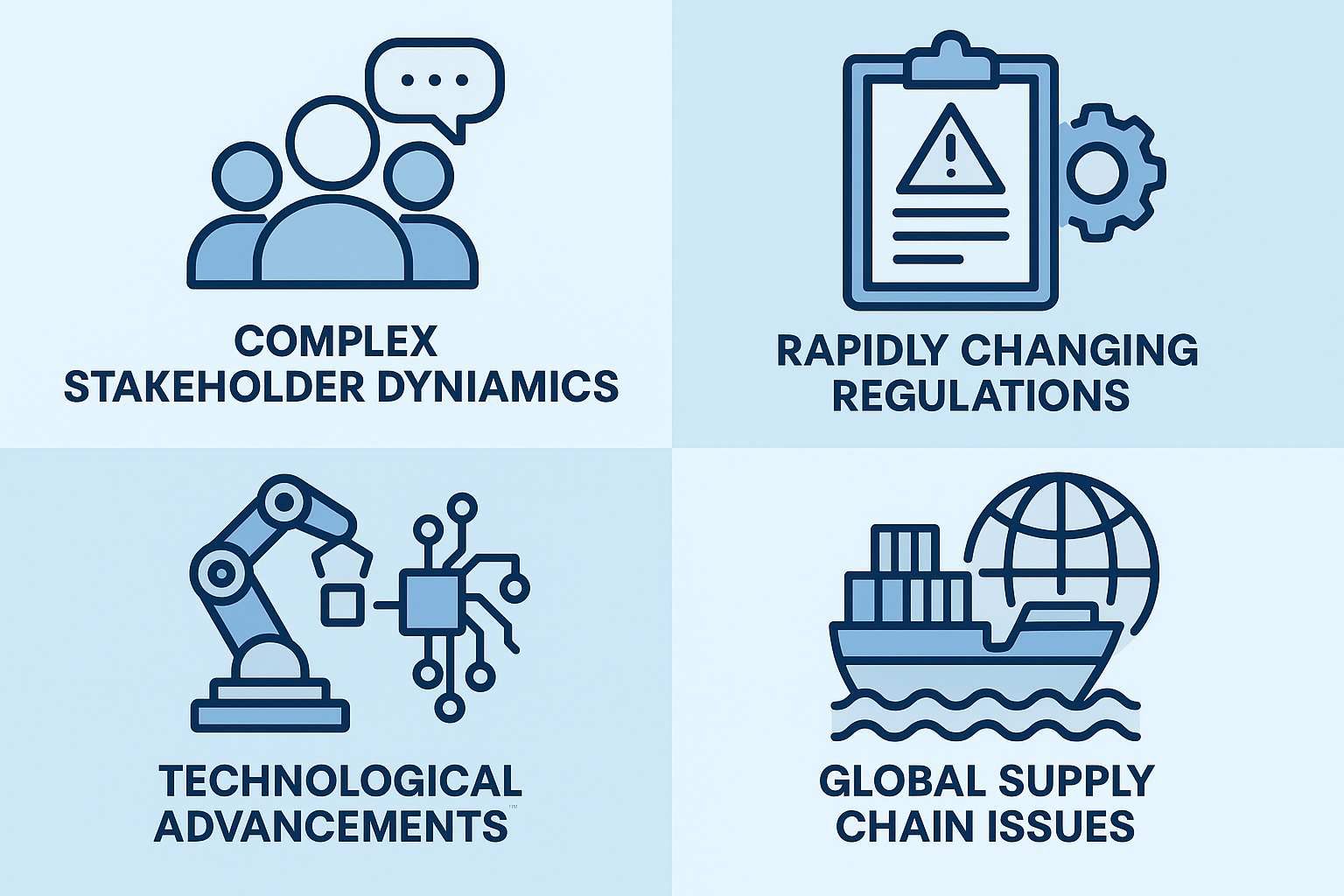
- Complex Stakeholder Dynamics: Balancing the needs of clients, contractors, and regulators can be demanding.
- Rapidly Changing Regulations: Constant updates to building codes, safety legislation, and environmental requirements require ongoing professional development.
- Technological Advancements: Adapting to innovations like Building Information Modelling (BIM), drones, and digital project management tools.
- Global Supply Chain Issues: Material shortages, rising costs, and international logistics disruptions impact planning accuracy.
Technology and Digital Transformation
The industry is undergoing digital transformation, and consultants are at the forefront of this change. They are adopting tools such as:
- Building Information Modelling (BIM) for collaborative design and clash detection.
- Project management software for real-time communication and scheduling.
- Drones and laser scanning for accurate site surveys.
- Data analytics for predictive risk management and cost forecasting.
These tools increase accuracy, transparency, and efficiency while allowing consultants to provide better insights for decision-making.
Selecting the Right Consultant
When choosing a consultant, clients should consider the following:

- Experience – Has the consultant delivered similar projects successfully?
- Reputation – Are they known for integrity, transparency, and reliability?
- Specialisation – Do they have expertise relevant to the project’s scope (e.g., commercial, residential, infrastructure)?
- Communication Skills – Can they effectively coordinate stakeholders with diverse interests?
- Accreditations and Memberships – Professional affiliations indicate commitment to ethical standards.
The Future of Consultancy in Construction
The role of consultants will continue to expand as projects grow more complex and demand for sustainable, digital, and safe solutions rises. Future trends may include:
- Greater focus on sustainability and climate resilience.
- Integration of artificial intelligence in risk forecasting and cost planning.
- Increased collaboration models where consultants work alongside contractors in integrated project teams.
- Enhanced client engagement through digital dashboards and real-time reporting.
Conclusion
Construction projects demand expertise that spans far beyond building skills. They require careful planning, compliance with regulations, management of complex risks, and alignment with business objectives. This is where the guidance of construction consultants becomes invaluable.
By offering independent advice, technical knowledge, and strategic oversight, these professionals help clients navigate challenges, reduce risks, and achieve project success. Their ability to manage complexity, balance competing interests, and implement innovative solutions ensures that construction remains not only feasible but also efficient, safe, and sustainable.
As industries continue to evolve, the expertise of construction consultants will remain central to shaping the future of built environments, providing clients with confidence that their investments are well protected and their projects are set up for success.
Related Content
Join Our Newsletter
Receive expert insights, safety updates, and the latest updates in our services and apps. Stay ahead of workplace safety, compliance, and operational efficiency delivered straight to your inbox.

.png)
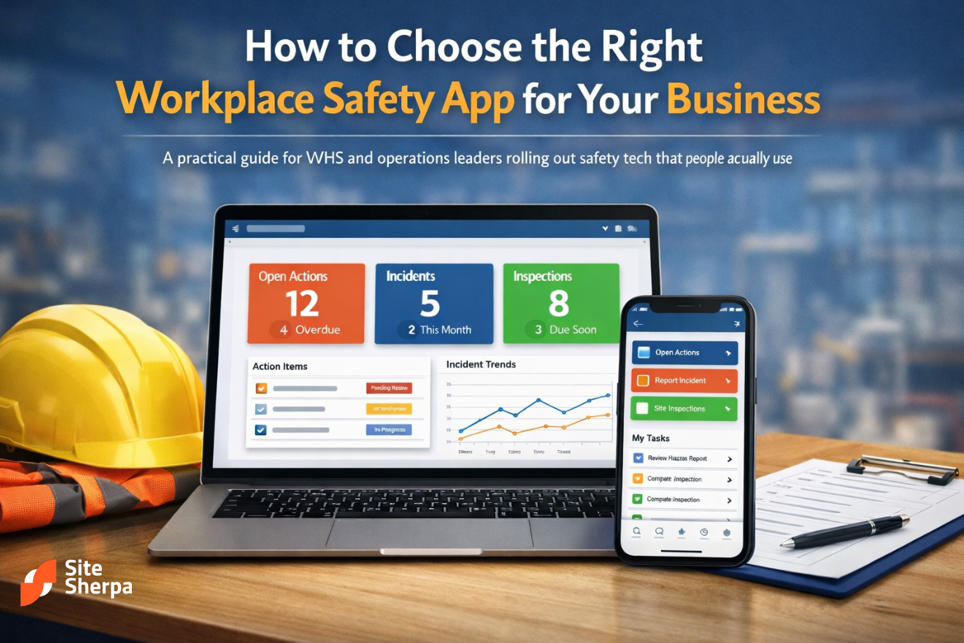
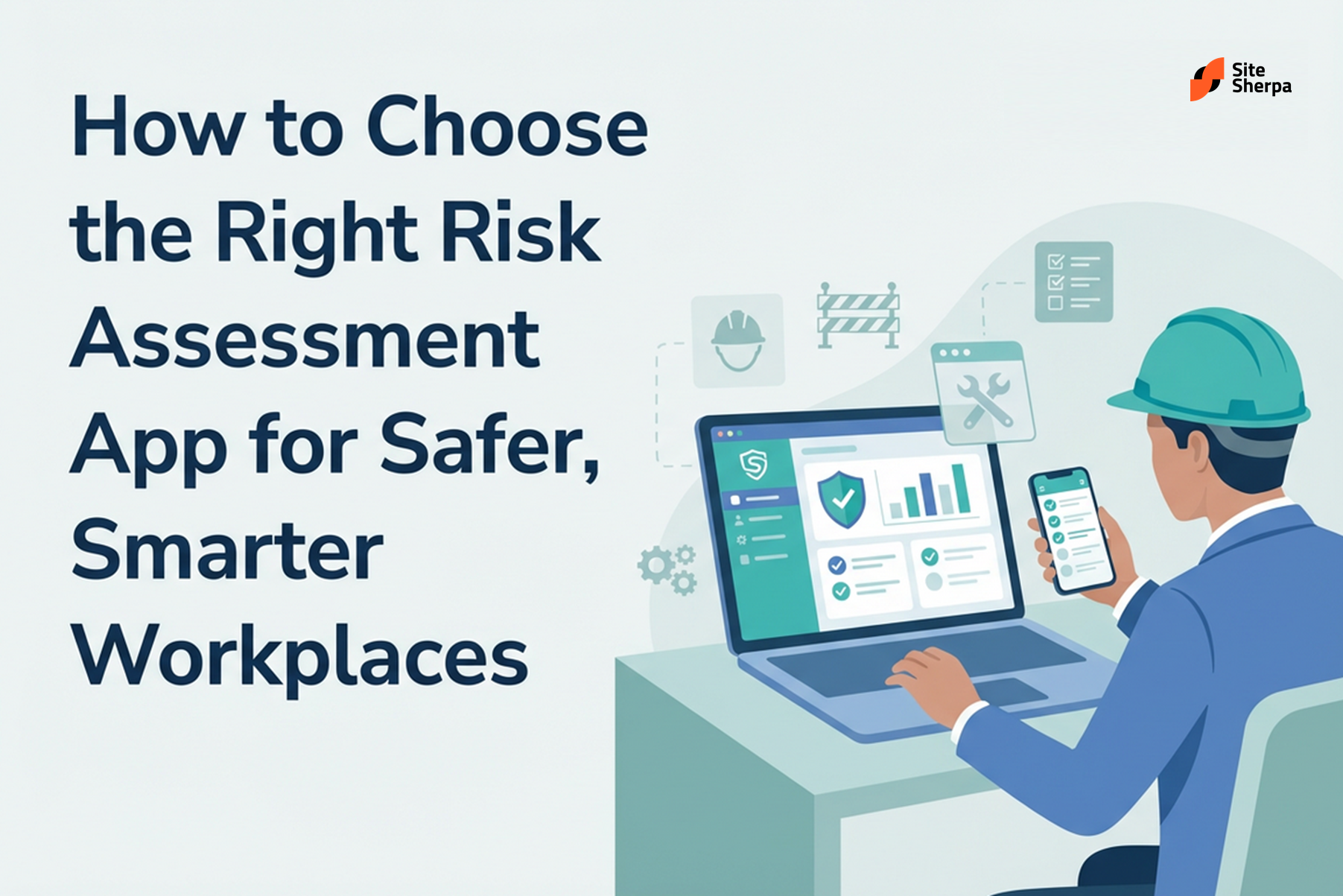
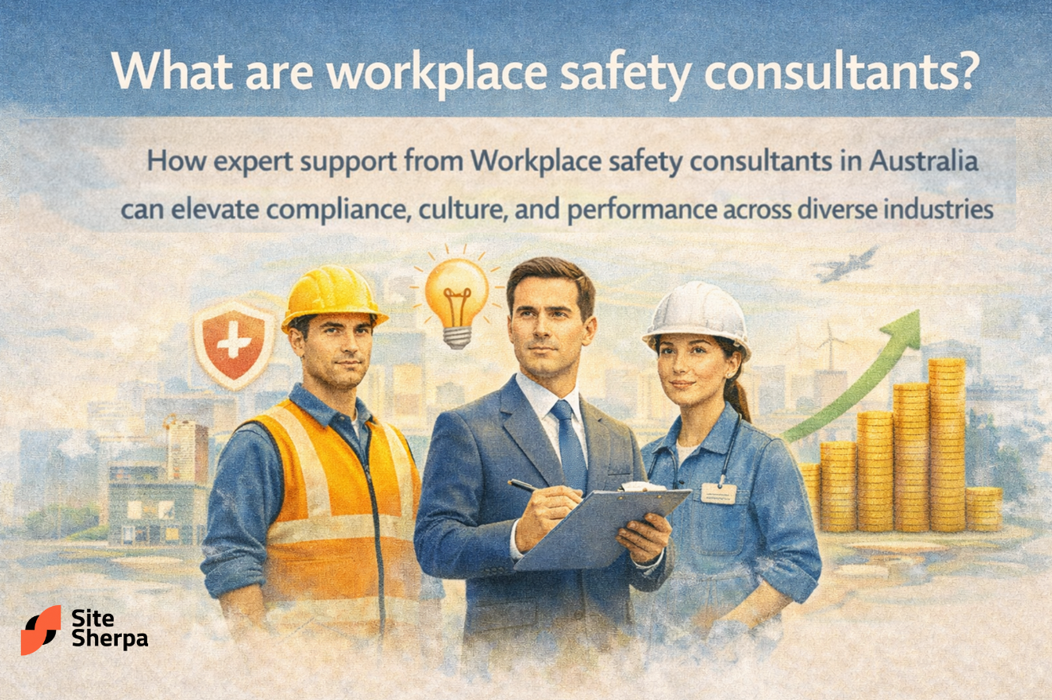
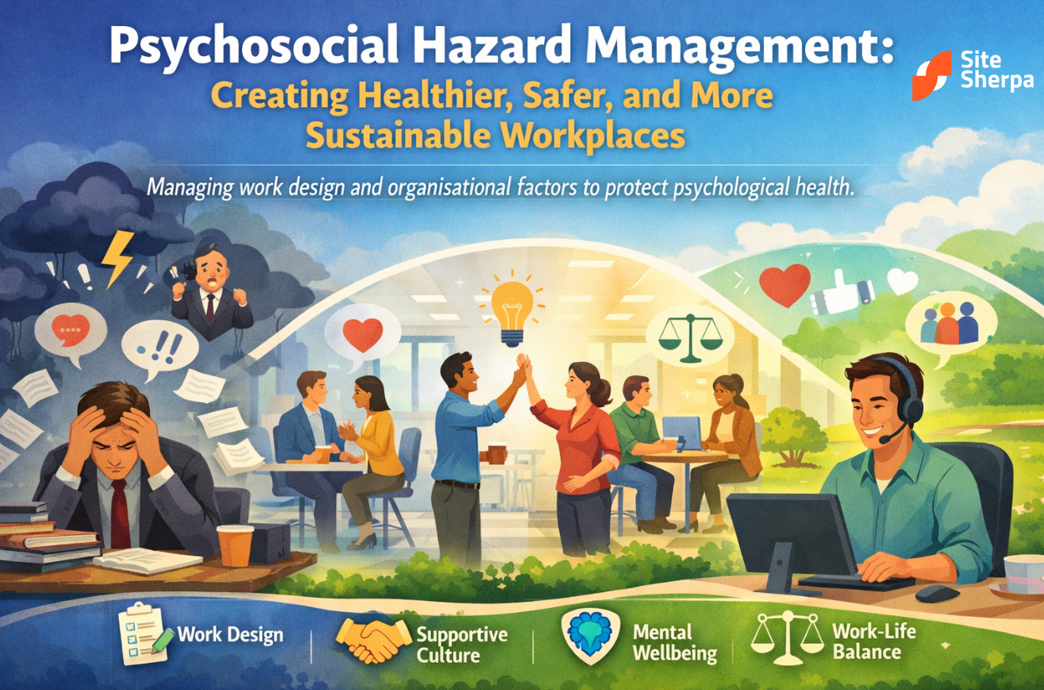
.png)
.png)
.png)
.png)
.png)